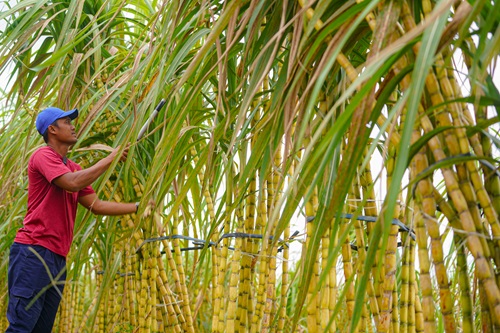By: Nur Syamila Kamarul Arefin

SERDANG, May 23 - The domino effect, which is expected to occur due to the flour shortage, will have a direct or indirect economic impact on several sectors. This phenomenon mirrors the previous rice crisis that occurred before despite Malaysia being also a rice producer.
According to Mahani Amat @ Halimi, an agriculture officer from the Community Transformation Centre, Universiti Putra Malaysia (UPM), Malaysia needs to be prepared and finds possible solutions to address the wheat crisis affecting the community.
“The government needs to give reassurance to the community. Although it is likely a long haul, the best action is to encourage the public to reduce wheat consumption and choose alternative foods.”
"The increase in the price of flour and flour-based food, if not strictly controlled by the government and relevant agencies, will aggravate the situation and result in a national food crisis that threatens the country’s harmony”.
"This is not an easy issue to resolve. Malaysia has no control over wheat production and supply, so we have no choice but to pay for the high import cost," she said.
The increase in wheat prices due to the Ukraine war that disrupts the world’s wheat production, the suspensions of wheat exports by certain countries, the effects of climate change and various other factors will gradually negatively impact importing countries such as Malaysia. This greatly affects the country’s food product value chains in the short and long term.
According to the head of the Department of Agricultural Technology, Faculty of Agriculture, UPM, Assoc. Prof. Dr. Norsida Man, the statement made by India to impose a ban on wheat exports has triggered panic buying among the public, especially among those who run flour-based businesses.
“Preparations in facing the food crisis should be made not only at the government level. Instead, every Malaysian must also work together to shoulder this important responsibility.”
“In fact, all of us can help with the food crisis issue by planting our own food at home. If we do not have land at home, we can use a vase or plant container. If the space is narrow, we can use the vertical or hydroponic method. Those who live in villages with ample land areas can start raising their own chickens or fish on a small scale as a source of protein.”
She said that to some extent, modernisation and current technology had a negative impact as they influence people’s mindset to crave a fast-paced lifestyle. Agricultural yields, on the other hand, need time and attention and can only be harvested after a certain period.
“I believe if every household grows some vegetables, it can at least help reduce imports of vegetables or even stop our dependence on imported vegetables such as cabbage, chilli, salad, cucumber, eggplant, mustard and others. We need to change our diet and lifestyle to adapt to the crisis we are facing, and in preparation, we should start farming or raising livestock in available areas,” she said. - UPM






